
Petroleum imports drop 9pc
Imports of the petroleum group dipped 9.27 per cent year-on-year in the July-January period of FY23 as unprecedented inflation curtailed overall demand amid an economic slowdown. The highest-ever increase in prices led to lower consumption of petroleum products. In absolute terms, the total import value of the petroleum group fell to $10.61bn in 7MFY23 from $11.69bn over the corresponding months of last year. Data compiled by the Pakistan Bureau of Statistics (PBS) showed the imports of petroleum products declined by 14.73pc in value during 7MFY23 and 33.74pc in quantity. Import of crude oil decreased by 13.53pc in quantity while the value increased by 10.90pc. Similarly, liquefied natural gas (LNG) imports fell by 20.84pc in 7MFY23 on a year-on-year basis. This would have translated into relatively lower LNG-based power generation — a replacement for furnace oil. On the other hand, liquefied petroleum gas (LPG) imports jumped 8.26pc. In January, total oil imports fell 12.42pc to $1.32bn, from $1.51bn in the same month last year.
|
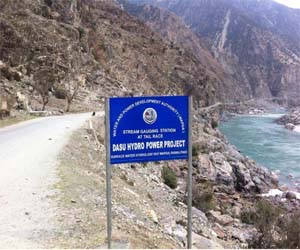
Dasu hydropower project
The under-construction Dasu Hydropower Project crossed a major milestone when the mighty River Indus was successfully diverted following completion of one of the two diversion tunnels. River Indus is now flowing through a 1.33-Kilometer (Km) long diversion tunnel with 20-meter (m) width and 23-m height. Consequently, construction activities have been initiated on the starter dam, leading towards construction of the main dam of Dasu Hydropower Project. Diversion system of Dasu Hydropower Project is comprised of two tunnels - tunnel A and tunnel B. Of these, tunnel B is complete, which has the discharge capacity, sufficient to divert water of River Indus during the current lean-flows season. The 1.5-Km long tunnel A, with 20-m width and 23-m height, will also be ready by mid April this year to cater for the increased water flows during the high-flows season. Dasu Hydropower Project is a vital component of the least-cost, green and clean energy generation plan of WAPDA. The project is being constructed across River Indus, upstream of Dasu town in Upper Kohistan district of Khyber Pakhtunkhwa. At present, WAPDA is constructing its stage-I with installed generation capacity of 2160 MW and annual energy generation of 12 billion units. Stage-I of the project is likely to start electricity generation in2026. The 2160 MW stage-II, when implemented, will also provide 9 billion units to the National Grid. On completion of the both stages, Dasu will become the project with highest annual energy generation in Pakistan i.e., 21 billion units per annum on the average.
|
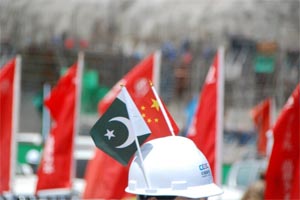
Chinese group keen on setting up plant in Punjab
A delegation of Chinese investors has expressed keen interest to explore opportunities in the fields of energy, health and technical training. During a meeting with Punjab Caretaker Commerce Minister S.M. Tanveer, the Chinese businessmen led by TIANS Group President Zhang Zhang desired to set up a manufacturing plant in Pakistan. Mr Tanveer said the government would cooperate in every possible way to attract Chinese investments in the Special Economic Zones being set up across the province to woo foreign investors. He added that the group can also make a joint venture with Pakistani companies and for this government will provide all possible facilities. “There are also several investment opportunities in the production of electric vehicles in Punjab,” the minister added. Punjab Board of Investment and Trade chief executive Jalal Hasan Khan gave a detailed briefing about the investment opportunities for Chinese companies in the province. He said 13 Special Economic Zones have been established while six are in the pipeline.
|
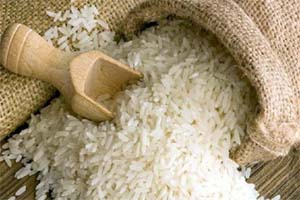
Pakistan’s rice exports shrink 16pc to $1.08bn
Amid a global economic slowdown, Pakistan’s exports of rice posted a negative growth of 15.82 per cent in the first seven months of the current fiscal year mainly due to the flood devastation of paddy fields in Sindh. In value, the total rice exports dipped to $1.08 billion in July-January this year from $1.28bn in the corresponding months of last year. The stagnation in export proceeds, especially of basmati rice, is mainly because of several reasons particularly the under-invoicing of rice to Afghanistan and Iran under the barter trade system. Rice Exporters Association of Pakistan (Reap) Chairman Chela Ram Kewlani told that the data compiled by the Pakistan Bureau of Statistics (PBS) did not show the basmati rice exports to Iran and Afghanistan. However, he said the crop of long-grain white rice (non-basmati rice) has witnessed a 40pc reduction in Sindh. The PBS data showed that basmati exports in quantity fell by 22.95pc to 316,055 tonnes in 7MFY23 from 410,207 tonnes over the corresponding months of last year. The non-basmati rice exports fell by 24.94pc to 1.62 million tonnes in 7MFY23 from 2.17m tonnes over the corresponding months of last year. Despite a substantial decline in exports, the prices of basmati and non-basmati increased unprecedentedly in the domestic market.
|

Finance (Supplementary) Bill with Rs 170 bln additional taxes
Minister for Finance and Revenue on 15th February, presented the Finance (Supplementary) Bill, 2023 in the National Assembly proposing to impose new taxes of Rs 170 billion to minimize the fiscal deficit. Tabling the supplementary bill in the House, the minister said the government had proposed to increase the General Sales Tax rate on the import of luxury items from the existing 17% to 25%, while the overall General Sales Tax rate had also been raised from 17% to 18%. He said the government had recently held talks with the International Monetary Fund (IMF) to revive the programme, during which it agreed to take some tough decisions for streamlining the deteriorating condition of the economy. President signed the proposed bill on February 23rd.
|

Fitch downgrades Pakistan’s sovereign rating to CCC
Fitch downgraded Pakistan’s Long-Term Foreign-Currency Issuer Default Rating (IDR) to ‘CCC-’, from ‘CCC+’ on account of sharp deterioration in external liquidity and funding conditions, and the decline of foreign-exchange reserves to critically low levels. No outlook was assigned to the country, in line with its policy of not assigning outlooks to ratings of ‘CCC+’ or below. The agency’s rating action commentary, said, “While we assume a successful conclusion of the 9th Review of Pakistan’s IMF programme, the downgrade also reflects large risks to continued programme performance and funding, including in the run-up to this year’s elections. Default or debt restructuring is an increasingly real possibility, in our view.” Pointing to Pakistan’s low reserves, it said that the liquid foreign exchange reserves of the State Bank of Pakistan (SBP) were at $2.9 billion on February 3, 2023, which would cover less than three weeks of imports. The reserves are down from a peak of more than $20 billion at the end of August 2021. “We expect reserves to remain at low levels, though we do forecast a modest recovery during the remainder of FY23, due to anticipated inflows and the recent removal of the exchange rate cap,” the agency said.
|
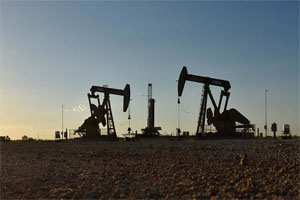
Govt asks refineries to raise petrol output to meet demand
Government has directed refineries to enhance their production to meet the shortfall of 8,000 metric tonnes of petrol, which was not available in various parts of the country, especially in Punjab. This was decided at a high level meeting of the Oil and Gas Regulatory Authority (OGRA), Petroleum Division and local refineries. The meeting was held a couple of days back, in which demand and supply of petroleum products in the country was reviewed. The meeting was told that the petrol shortfall would likely be 8,000 metric tonnes, and in order to ensure sooth supplies of petroleum products in the country, it was decided to advise all refineries to enhance their production to meet the demand of petrol. OGRA chairman also informed about expected higher consumption of high speed diesel by the end of February-March as a result of agricultural demand, which would also require local refineries to keep the production higher. It was decided at the meeting that all refineries should enhance their through put immediately to meet the petrol shortfall of 8,000 metric tonnes.
|

Edible oil output grew 11.62%, ghee 3.37% in six months
Domestic output of cooking oil and vegetable ghee during the first six months of the current financial year grew by 11.62 percent and 3.37 percent respectively as compared to the production of the corresponding period last year. During the period from July-December, 2022-23, about 252,563 metric tons of cooking oil were manufactured locally as compared to the manufacturing of 226,267 metric tons of the same period of last year. Meanwhile, 737,461 metric tons of vegetable ghee were also produced and manufactured in order to fulfill the domestic requirements as well as for exporting as against the production of 713,442 metric tons in the same period of last year, according to the data of the Pakistan Bureau of Statistics.
|
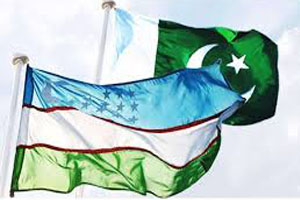
Pakistan, Uzbekistan sign $1bln trade agreement at IGC
Among other developments, Pakistan and Uzbekistan signed $1 billion trade agreement at Inter-governmental Commission (IGC), which will encourage exchange of goods and services and will also ease process of trade. The 8th Session of Pakistan-Uzbekistan Inter-governmental Commission (IGC) on Trade-Economic and Scientific-Technical Cooperation was co-chaired by Minister of Investments, Industry and Trade, Uzbekistan, Laziz Kudratov and by Federal Minister for Finance and Revenue, Senator Mohammad Ishaq Dar in Uzbekistan, according to press statement received here. The commission mainly focused on bilateral economic cooperation in various sectors including commerce and trade, banking, industries and production, investment, textile industry, energy, oil and natural resources, transportation and communication, agriculture and tourism and culture development. The continuous efforts by both countries to encourage closer ties, especially in the fields of trade, transport, banking, and agriculture was appreciated by the Uzbek side.
|
|

© 2023 Alpine Marine Services Private Limited
all rights reserved
|
|
|